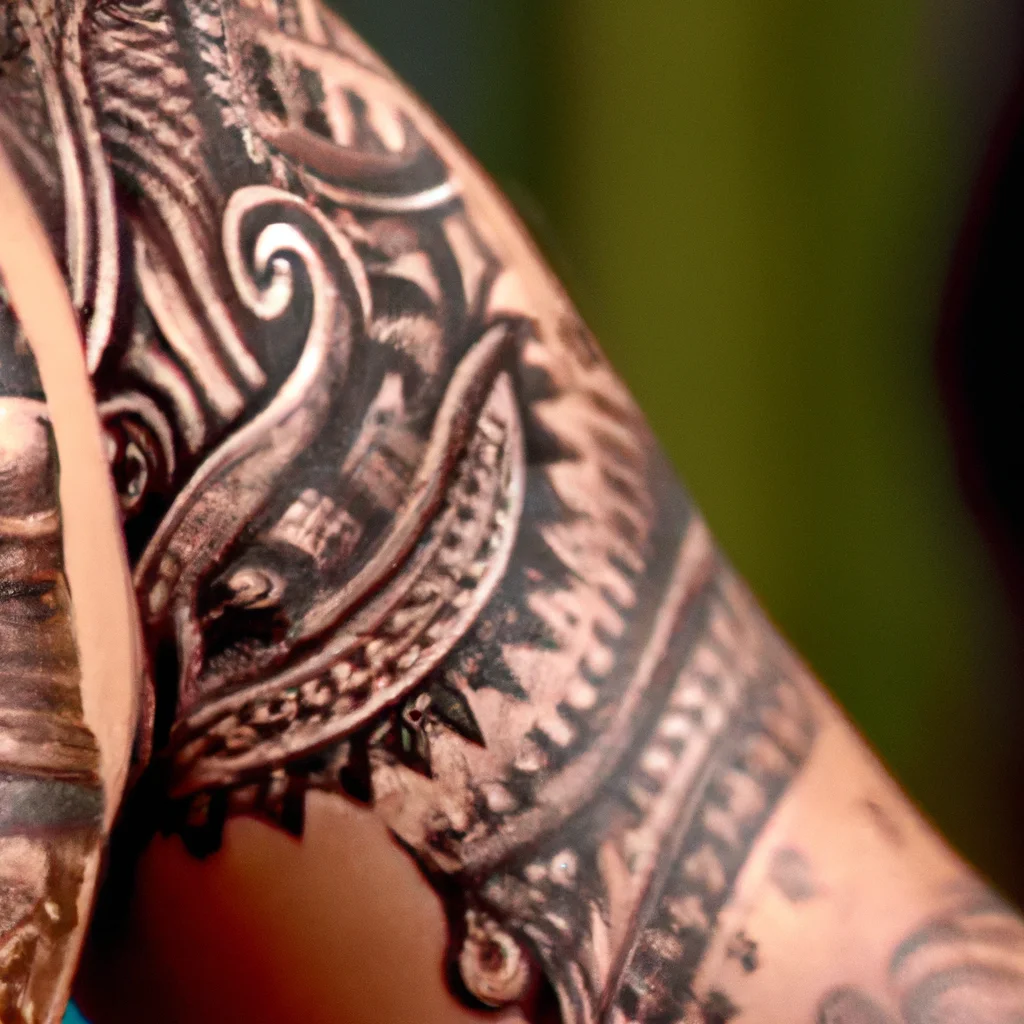What is the history and significance of tribal tattoos?


What is the history and significance of tribal tattoos?
Tribal tattoos have a long and rich history, dating back thousands of years. These tattoos have been a part of various cultures and have varied in their significance and design. In this article, we will explore the history and significance of tribal tattoos and how they have evolved over time.
History of Tribal Tattoos
Tribal tattoos have been a part of various indigenous cultures across the world, from the Maori in New Zealand to the Borneo tribes in Southeast Asia. These tattoos were used to signify different things, such as social status, religious beliefs, or achievements.
In some cultures, tribal tattoos were used as a rite of passage, marking the transition from childhood to adulthood. For example, in the Marquesas Islands in French Polynesia, boys would receive their first tattoo at the age of 12-14, marking their entry into manhood.
Tribal tattoos were also used as a way to identify different tribes or clans. Each tribe had its own unique tattoo designs, which were a source of pride and identity.
Significance of Tribal Tattoos
Tribal tattoos have a cultural significance that goes beyond their aesthetic appeal. They represent a connection to one’s heritage and history, and they tell a story about a person’s identity and values.
Tribal tattoos are often associated with strength, courage, and bravery. In some cultures, warriors would tattoo themselves before going into battle as a way to invoke the protection of their gods.
Tribal tattoos can also represent a person’s spiritual beliefs. In the Maori culture, tattoos were seen as a way to connect with their ancestors and the spiritual world. Each tattoo design had a specific meaning, and the tattooing process was seen as a sacred ritual.
Tribal Tattoo Designs
Tribal tattoo designs are known for their bold, intricate patterns and geometric shapes. These designs are often inspired by nature, such as the sun, moon, or animals.
In some cultures, the placement of the tattoo had a specific meaning. For example, in the Maori culture, the face was considered the most sacred part of the body, and tattoos on the face were reserved for the most important people, such as chiefs or warriors.
Traditional Tattoo vs. Tattoo Art
Traditional tribal tattoos were done using a manual needle and ink, often using natural pigments such as charcoal or burnt wood. These tattoos were done by skilled artisans who had been trained in the art of tattooing.
Today, tribal tattoos are often done using modern tattoo machines and ink. While these tattoos may not have the same cultural significance as traditional tattoos, they still hold a special meaning for those who choose to get them.
Tattoo Culture and History
Tattoo culture has evolved over time, from being a mark of social status to a form of self-expression and art. In some cultures, tattoos were seen as a sign of rebellion, while in others, they were a sign of conformity.
Tattoo history is rich and varied, with different cultures and time periods contributing to its evolution. From the ancient Egyptians to the modern-day tattoo culture, tattoos have played an important role in human history.
Indigenous Tattoos
Indigenous tattoos are a form of tribal tattoos that are specific to certain cultures or regions. These tattoos often have a deep spiritual or cultural significance and are an important part of the identity of the people who wear them.
In some indigenous cultures, tattoos were used as a form of protection, while in others, they were a way to connect with the spirit world. Each tattoo design had a specific meaning and was done using traditional methods.
Conclusion
Tribal tattoos have a long and rich history, with each culture contributing to their evolution and significance. From the bold, intricate designs to the spiritual and cultural significance, tribal tattoos represent a connection to one’s heritage and identity. Whether done using traditional methods or modern techniques, tribal tattoos continue to be a popular form of self-expression and art.
Recent Posts
How do I create an engaging and informative online quiz or assessment?
Creating an engaging and informative online quiz or assessment can be a powerful tool for… Read More
What are the most effective methods for managing and reducing work-related stress in the hospitality industry?
Work-related stress is a common issue in the hospitality industry, where employees often face long… Read More
How can I improve my assertiveness and communication skills in a leadership position?
In a leadership position, assertiveness and effective communication skills are crucial for success. Being able… Read More
What are the key elements of a successful employee recognition and rewards program?
Employee recognition and rewards programs play a crucial role in motivating and engaging employees, as… Read More
How do I effectively manage and respond to customer feedback and reviews?
Customer feedback and online reviews play a crucial role in shaping a company's reputation and… Read More
What are the best strategies for effective time management as a stay-at-home parent?
Effective time management is crucial for stay-at-home parents who juggle multiple responsibilities on a daily… Read More